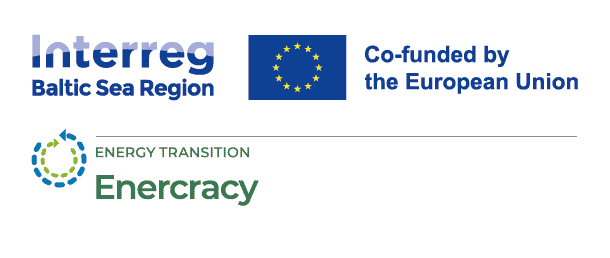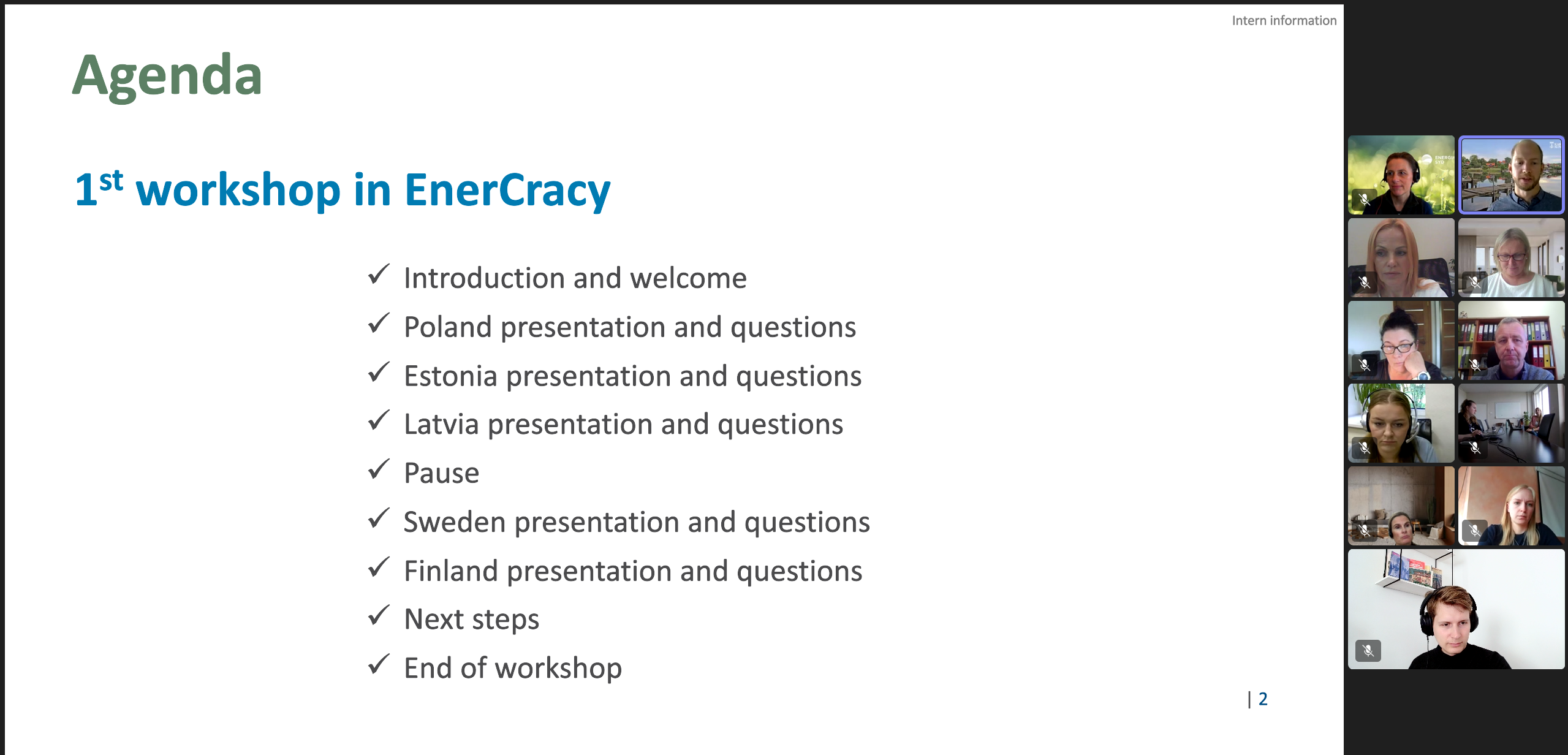
The Outcomes of the First Workshop on Measures for Municipal Climate Neutrality
27 August 2025
To facilitate the knowledge exchange on municipal climate neutrality, the Enercracy project consortium organised the first workshop to discuss different measures to enable the transition, focusing on interactions between prosumerism, energy communities, solar and wind energy technologies, and other dimensions of planning for climate neutrality. During the workshop, each team presented the ongoing work of the respective National Working Group, aimed at facilitating the development of the Model Catalogue of Measures and supporting the development of the energy and climate plans for the case study municipalities in five countries. The event outlined the diversity of visions of achieving climate neutrality, simultaneously showing key similarities across the contexts and approaches in different countries of the Baltic Sea Region.
Creating the enabling conditions
The work of the National Working Groups highlighted the need to go beyond the installation of the necessary technological solutions. The representatives of the Polish and Latvian National Working Groups shared the need to target a wide range of audiences through education and knowledge exchange to potentially facilitate the understanding of the benefits of prosumerism and energy communities. Other members, such as those from Estonia and Sweden, identified streamlining and improving municipal procedures, such as permitting and procurement, as essential for developing prosumerism and energy communities. These visions and recommendations embed the planning for climate neutrality in municipalities as a more embedded and integrated process, expanding into broader municipal contexts. The sentiment was further strengthened by the representatives of the Finnish National Working Group calling for a wider range of areas of intervention to be included in the Model Catalogue, including agriculture and water management, as well as the Polish National Working Group calling for inclusion of energy storage into the list of measures.
Being tangible in solutions
The questions of tangibility were raised through different dimensions. First, the importance of the tangible examples for the energy community and prosumerism-enabling initiatives was acknowledged. The invitation to more piloting in the form of smart villages was proposed in Latvia, whereas the representatives from Sweden and Finland noted the already existing initiatives to be further shown as examples of successful action. However, the tangibility was not limited only to the examples; the discussion of the measures also called upon the development of frameworks for more dedicated assistance for energy communities and building renovation projects in the form of more dedicated guidance and assistance, rather than in their usual form of advice. By developing such support systems, the capacity to participate in such initiatives will be substantially wider, not limited to the individuals and organisations with already existing skills.
Axis of power
A throughline was identified in most cases: the limits of the municipal actions, particularly concerning the activities of the national governments. In Estonia, for instance, the potential for grid measure facilitation to enable prosumerism and energy communities is hindered by the fact that the distribution system operator manages the distribution networks on the national level. Similarly, the defence-related infrastructure and regulations reduce the overall potential for renewable energy installations. However, such instances also provide alternative action pathways, such as in the Swedish National Working Group case, which identified wind turbine repowering as an essential measure for strengthening the renewable energy generation in areas with existing old wind energy infrastructures.
What is next?
The first workshop plays an important role in the Enercracy project facilitation, by being the first prominent space for exchange of ideas and knowledge on climate neutrality facilitation in municipalities. The work will culminate in the development of the Model Catalogue of Measures for Municipal Energy and Climate Plans, finalised in February 2027, after testing in five municipalities represented by the National Working Groups. Follow the activities of the Enercracy project on our webpage and LinkedIn!

An online workshop on August 27, 2025





